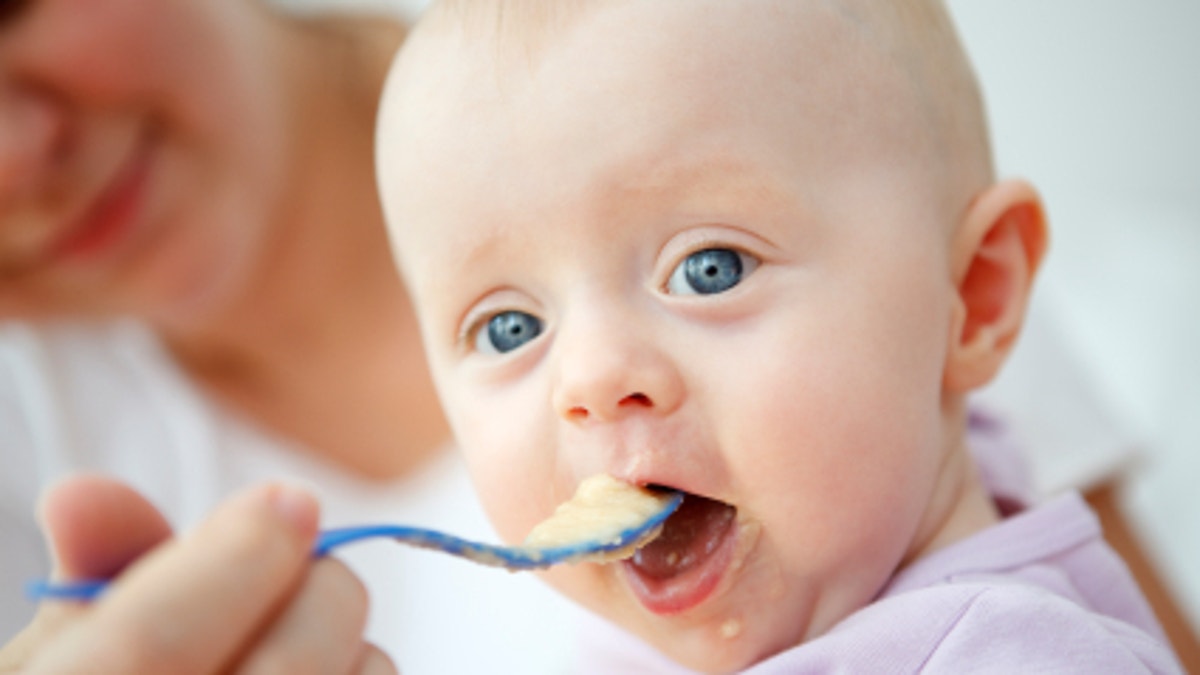
Sure, you’re no gourmet chef, but whipping up your baby’s food at home—yes, from scratch—
can be one of the best things you do for him or her. So whether you’re a puree pro, or eager to learn, here are 8 secrets you should know:
1. You’re in control.
“When you make your own homemade baby food, you decide exactly what goes into it so you know that it’s fresh and healthy,” according to Karen Ansel, Spokesperson for the Academy of Nutrition and Dietetics and co-author of The Baby & Toddler Cookbook. Homemade baby food also tastes much better than store-bought, which improves the likelihood that your baby will enjoy his food and the process will be a better experience for both of you.
2. It’s more nutritious.
Although store-bought food is cooked at extremely high heat to kill any bacteria, Ansel says it doesn’t kill vitamins but it might alter the mineral content. A recent study published in the journal Food Chemistry, store-bought baby food may contain less than 20 percent of the recommended levels of many minerals and micro-nutrients. Many of the store bought options also have starches, additives and preservatives, and don’t use organic ingredients, which exposes your baby to harmful pesticides.
3. There are more options.
Sure, some store-bought brands offer interesting combinations, but when you make it yourself, you have a wider selection of ingredients. If eating local, organic, in season, or antibiotic or hormone free is important to you, making it yourself can allow you to do so. You can also vary the texture of foods, and when your baby is 9 months old, you can add in a variety of herbs and spices to add some flavor.
“By exposing your baby at an early age to all those different flavors, you increase the chances that your baby is going to be a better eater by not giving them the same foods over and over so that their taste buds become more flexible,” Ansel said.
4. It doesn’t have to be a hassle.
Making your own baby food doesn’t have to be time-consuming. If you make it in bulk and freeze it, depending on your tools and storage, you’ll only be spending a few hours every week or less. And once your baby turns 7 months old, all fruit except for apples can be pureed or mashed without being cooked, unless your pediatrician tells you otherwise, according to Liza Huber, Founder of Sage Bears, LLC and creator of Sage Spoonfuls. There are also services like Petit Organics and Junior’s Fresh in New York City that will make fresh, homemade meals and deliver them to your door.
5. Your baby won’t be picky.
“By starting your baby on homemade baby food, you are greatly reducing the chance that they’re going to grow into a picky eater,” Huber said. Got a one year old who snubs food even if you’ve been making it all along? “As their growth slows down, they can afford to become more picky,” according to Ansel, who said that as long as you continue to offer your baby a variety of foods, your efforts will pay off in the long run.
6. You won’t have to sneak veggies.
“We don’t want a country full of 18 year olds who never realized they ate broccoli before,” said Catherine McCord, founder of Weelicious.com, adding that the more you can get your baby to feel excited about eating fruits and vegetables, the more empowered he will feel to eat them in the future. “By tasting, seeing, and smelling the natural taste of homemade baby food, already a baby’s palette is being set up for fresh flavors,” she said.
7. Mealtime will be a happy event.
“Parents are the number one influence on their child’s eating habits,” said Ansel. So as your baby becomes a pre-toddler, you can make many of the same healthy meals for him that you do for the rest of the family, without becoming a short order cook. Eating at the same time isn’t always feasible, but if you can do it a few times a week or let your baby pick at just a few pieces, meals will be much easier later on.
8. Store bought is OK…sometimes.
It’s not always possible to have homemade all the time, so it’s OK to buy commercially prepared baby food if you’re short on time, away from home, or on vacation. Be sure to read labels as all brands are not created equally and look for organic to avoid pesticides. “If they’re eating something that has pesticides in it, per pound of body weight they are getting much, much more of those pesticides in their food,” Ansel said.
Julie Revelant is a freelance writer specializing in parenting, health, and women's issues and a mom. Learn more about Julie at revelantwriting.com
